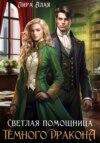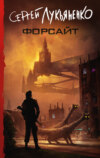Читать книгу: «Sweet Mace: A Sussex Legend of the Iron Times», страница 23
How Gil brought the Bride from the Burning House
For a few moments Gil’s men and the followers of Sir Mark stood appalled by the effects of the explosion. Fully one-half had been prostrated by the terrible blast that had swept the beautiful old garden, cutting down tree and shrub as level as if with a knife. Some of the men lay groaning where they had been cast, burned, wounded, and disfigured; while those who were uninjured, of whichever side, seemed as if by mutual consent to consider their petty strife at an end in the face of so awful a catastrophe, and, sheathing their swords, stood looking at the ruined house before them, confused and unmanned by the shock.
For to a man the explosion had so shaken them that a curious feeling of helplessness had succeeded to the energy they had displayed, and no one moved even to render assistance to the wounded.
Suddenly a loud voice shouted —
“Run, my lads, run! There will be another explosion directly. It is a plot to blow up the place.”
This seemed to break the spell, and there was a rush of feet towards the closed bridge, when the founder’s voice arose.
“No, no,” he cried; “there can be no other explosion. It was my store; I thought it safe; the powder has all – ”
He stopped speaking, and reeled and nearly fell to the earth, for he had received a blow from a falling beam; but he recovered himself sufficiently to point towards the house in an appealing way that no one understood.
“Halt there!” cried Sir Mark, who now rose to his feet, from where he had been thrown, “follow me some of you, quick, before it is too late.”
He might well add these last words, for, as the smoke rose like a heavy pall above the ruined house, it could be seen that, with the exception of a couple of the gables near where they stood, the place was shattered and nearly razed to the ground. There was a huge hole here, another cavernous rent there, and, piled above them, beams and rafters, blackened, smoking, and dotted with glowing embers, which began to sparkle as the portion of the house now standing burned furiously.
There was no need for light, for wood had entered largely into the construction of the building, and the powder seemed to have prepared everything to burn. With a rush great tongues of fire leaped from the embayment of the fine old parlour, whose diamond panes flew crackling out, while the lead in which they were set trickled down in a silvery stream. The whole of the parlour glowed in a few seconds like a furnace, and directly after the fire sprang forth from the two rooms above, and then again from the little window in the pointed gable, which was soon being licked from gutter to the copper vane on its summit by the orange and golden flames.
The rooms on either side rapidly followed, and soon the two gables that had remained after the explosion seemed wrapped in fire, which lit up the unscathed trees, and turned the lake as if into a pool of blood.
As Sir Mark sprang forward, a dozen men ran to his side – Gil’s men, every one of them, for his own stood aloof; but as they went close up a rush of flame and smoke drove them back, scathing and scorching them so that it was impossible to face it.
“A ladder – a ladder – fetch a ladder!” cried Sir Mark.
The words were hardly uttered, before a couple of men picked up that which Wat Kilby had used as a weapon, and to which he still tightly clung, as he lay at some little distance, where he had been cast.
This was dragged from him, and a couple of men reared it, by Sir Mark’s directions, against the burning casement of Mace’s room.
Seizing the rounds Sir Mark climbed up, and reached the room, now all aglow, but as he felt the scorching flames, which were already burning the top of the short ladder, he rapidly descended and stood wringing his hands, while Gil’s men seized poles, fetched buckets from a shed, and began to obtain water from the race.
“It is impossible! My poor girl! What shall I do?” moaned Sir Mark.
Then to the men nearest he shouted, his voice sounding shrill and strange amidst the roar and flutter of the flames, “There is a lady in yonder – a hundred golden pounds to the man who fetches her out.”
There was a murmur amongst the little crowd, but no one stirred, and he repeated his offer.
“Are you men to stand there and see her burned to death?” he cried. “Two hundred pounds to the man who saves Mistress Mace Cobbe.”
“Damn your two hundred pound,” cried a hoarse voice, as a great gaunt blackened figure crawled into the glow. “Up the ladder, my lads, there be two women there.”
“Old Wat,” cried the men, in a loud chorus of excitement, as the weird looking figure stretched out its hands, and seemed to grope blindly towards the ladder, but rolled down with a groan, utterly unable to make the attempt, having received some injury to the hip.
“Is there no man here who will try to save the helpless women?” cried Sir Mark. “That’s right, my brave lad,” he said, as one of Gil’s men took a hatchet from his belt and ran up the burning ladder.
He seemed to beat back the flames with his hands, and bravely climbed in at the window, a roar of cheers following him, as he regularly leaped into the burning room. Then there was a shower of sparks, a rush of flame, and, to the horror of all present, the brave fellow was seen to literally roll out of the parlour casement, blackened and burned, having fallen at once through the floor to the room below.
“No one can be there and live,” he gasped. “Water, boys, water! I am burning: throw me in,” he shrieked; and one of his companions deluged him with the contents of a bucket.
“It is all over. How horrible – how horrible!” groaned Sir Mark. “Quick lads, water, dash it in. Who is that?”
He started back almost in fear, as he saw Gil stride forward, pick up the fallen axe, and seize the ladder to drag it from the burning casement.
As he did so he staggered, for he was quite giddy yet from the blow he had received when the explosion cast him some twenty feet away; but he recovered directly, and, planting the ladder against the next window, he seemed to regain his strength, and dashed up axe in hand.
There was a lusty cheer at this, and Sir Mark gnashed his teeth, as he wondered why he had not thought of going up to the next window, where the flames seemed to burn less furiously, though the next instant they were pouring out from the shattered window beneath, and making the long trailing strands of roses and woodbine writhe and twine as if in agony, as the flames licked them up, and then seemed to wreathe themselves around the figure of Gilbert Carr.
With two vigorous blows, he dashed in the oaken divisions of the window, and as he struck the flames leaped into his face, wrapping round him; but he seemed to heed them not, for blow after blow fell, till he cleared the way, and then, leaving the burning ladder, he climbed right in, and a dead silence fell upon all present as he disappeared amidst the flames and smoke, which came rolling out more furiously than ever.
No man spoke for a while, as the fire crackled, and the tiles on the old house slipped, and fell rattling down. The copper vane suddenly began to burn in the intense heat with a vivid blue light like some firework. The ladder, which had stood out dark against the flaming windows, gradually burned till rounds and sides were so much glowing charcoal, and a dull sense of horror chilled to inaction the spectators of the gallant deed.
Suddenly Wat Kilby raised himself up on his knees, supporting his injured body with one hand, and lifting the other to wave above his head.
“His father’s son!” he yelled, as the fire glistened in his wild eyes and blackened hairless face, for his grisly beard was scorched away – “his father’s son – a Carr! – a Carr! – Culverin for ever! Fetch him out brave boys – a rescue – a rescue! Forward boys – Board!”
As he yelled out these words, they seemed to electrify his followers, and with a shout the crew dashed to the burning house as if about to plunge in.
There was no hesitation now, not a man flinched, but, leaping in through the lower burning window, the ladder fell in so many glowing fragments amidst the feet of the foremost, who disappeared for a few brief moments, and then re-appeared with Gil Carr, bearing out through the flames a figure that seemed to be clad in gold, so glistening and yellow seemed the satin dress, with its stomacher of pearls.
The men drew back from him as Gil bore his burden on towards what had once been the shady lawn of the garden, and laid it reverently down, tearing a handkerchief from his breast to cover the ghastly mutilation of the face, and then crushing out as he knelt the smouldering flames and sparks that had attacked the wedding-dress.
“Mace, my darling!” cried Sir Mark, passionately.
“Back!” cried Gil, fiercely; “touch her not, upon your life.”
Sir Mark shrank away, appalled by the fierce gaze of the man who knelt there upon one knee, reverently arranging the garments round the dead, whom he had found comparatively untouched by the flames, but pinioned and crushed by a fallen beam. He heeded not his own sufferings, though those who stood by could see that the doublet he wore was falling from his breast in pieces; that the leather of his belt and boots had crumpled up in the intense heat; and that his hands and face were horribly scorched.
“Let me see her, let me see her,” cried a harsh voice, and the little crowd parted to let Wat Kilby crawl forward. “Is it Janet? Tell me, brave boys, is it my lass? The cursed powder has taken away my sight. Tell me, brave boys, is it my little, bright, tricksy Janet?”
“No, no, no,” moaned a piteous voice; “it is my child – my darling child. Oh, Mace, Mace, joy of my poor old heart, has it come to this?”
There was so piteous an appeal in these words – so intense, so terrible was the suffering they betokened – that the men drew back as the founder staggered to the side of the dead, let himself fall upon his knees, and there crouched with his hands clasped together in his lap, gazing helplessly down.
The remains of the Pool-house burned brightly still; the flames licked up rafter and beam; the red-hot tiles cracked and splintered and fell with a crash from time to time, sending up a whirlwind of sparks; and the blaze that lit up the Pool and forest far and near made plain, as if seen by day, the piteous group on the old lawn. But no one heeded the fire now, or dreamed of there being danger of the flying embers setting light to one or other of the powder sheds. Every thought was turned to the bereaved father; and as Sir Mark stood there, among his followers and the workpeople, one of the few unscathed by the fire, he found himself, bridegroom-elect although he had been, a person apparently of very secondary import, for next to Jeremiah Cobbe men and women gazed upon Gil Carr.
Just then the founder raised one of his trembling hands and stretched it out to reach the kerchief Gil had so lovingly placed over the mutilated face, but the latter stayed him.
“No, no,” he said in a low voice, “for your own sake no. Let us remember our darling as she was.”
The old man’s hand closed upon the scorched palm, and then he laid the other upon it and held it, gazing piteously in the other’s face.
“Right, Gil,” he said in a cracked voice. “Right! Let us remember our darling as she was.”
There was a pause here, and a beam fell in the burning house, causing a whirlwind of sparks to rise.
“Forgive me, Gil,” continued the founder. “Even if this hand did slay Abel Churr, the fire has purged it. Brave boy – brave boy! I was very hard on both!”
“Over her who lies here I swear I am innocent of that man’s blood,” said Gil softly; and then in a lower tone, “My darling – my darling – you believed my words.”
“And so do I, Gil,” cried the old man piteously. “Oh, my child, my child! God in heaven, how have I sinned that I should suffer this?”
A shudder ran through the crowd, so wild and piercing suddenly rose the old man’s upbraiding cry, while like an echo to his words came a shrill, harsh voice from the direction of the ruins, where, on a heap of smouldering wood and stones, stood Mother Goodhugh, like a black silhouette against the flames.
“Woe to the wicked house! Woe to the maker of deadly grains! Woe to the caster of cannon and culverin and gun!”
There was a dead silence, and then, amidst the crackling of the blazing wood and the fluttering of the flames, rose once more the voice of Mother Goodhugh, as she gesticulated and waved her stick.
“What did I say? What did I foretell against this evil man and his house? Did I not cry, it was cursed, and that the curse would fall? Look at the wicked place! And now once more I raise up my voice, and tell thee that a curse will fall on him or her who touches stick or stone to try and raise it up again. Let it burn – let it be level with the earth, and become a refuge for snakes and toads and unclean things. Let no man try to build it up, or be he cursed as well.”
“Silence, hag!” cried Sir Mark passionately.
“Nay,” she cried, “I will not hold my peace. Go thou, young man, and rejoice that thou art saved from to-morrow – saved from wedding to the daughter of one whom I had cursed. Who doubts the power of Mother Goodhugh now? Speak, Jeremiah Cobbe, did I not foretell the ruin of thy house?”
“My poor child. My little love – where are thy pretty sayings now, where thy prattling ways? Little Mace – pretty little Mace! How old is she to-day, mother?” said the founder, gazing at vacancy, with a smile, for the old woman’s words had not reached his ears. “Six, eh? six. Why what a great age for my darling to have grown. Gil, my boy, God bless thee, lad! You have grown stout and well again, and I look to thee to protect my little one from harm. There, you must love her; take thy little sister; keep her from the pool, and mind her pretty little feet don’t stray near the water side. Hey, boy, did’st ever see such bonny little feet, so white and pink, and pretty, it seems a sin to put them into leather shoes. Be good to her, my brave stout lad, and some day – who knows? – thou may’st perhaps like to make her thy own little wife. If thou dost, ha, ha, ha! she shall not disgrace thee, boy, for she shall be a very lady in her way.”
He looked round with a vacant smile, and nodded pleasantly at Gil.
“Cursed! I tell thee – cursed!” cried Mother Goodhugh. “It has been a long time coming, but it has come at length. Look how it smokes and burns. Didst hear the noise the devilish powder made? Ha! ha! ha! That which he made to destroy others has destroyed himself. Burn, flames, burn!” she cried, waving her stick; “burn wood and stones, and burn until all is level with the dust!”
The crowd stood round her at a respectful distance listening to her ravings, and had she been the wise woman she professed to be, she would have known where to stop and beat a hasty retreat, with a great increase, among the simple people, to her reputation. But it was not to be.
Just then, borne in a lumbering carriage that this time had brayed all the ruts, up came Sir Thomas Beckley, with Mistress Anne and Master Peasegood.
The old woman caught sight of Anne Beckley as she descended hastily from the carriage, and approached her with a malicious, triumphant look.
Just then the jealous girl caught sight of the prostrate body in its wedding-dress, and seemed petrified.
“What did I say – what did I say?” cried a voice behind her, and turning she encountered Mother Goodhugh’s malignant eyes.
This was too much for Anne, who crept shuddering away, when the burning house, the kneeling figure by the dead, the whole scene seemed to swim round her, and she would have fallen but for Sir Mark, who caught her in his arms.
“Oh, it is too dreadful – too dreadful!” she murmured, and closed her eyes.
“Master Peasegood, will you take him to your house?” said Gil. “Poor soul! the shock has been too heavy for his brain.”
“Eh! Go with Master Peasegood? Yes,” said the founder smiling. “Gil, brave lad, you’ll see that my darling does not come to harm.”
Gil bowed his head, and as the founder rose from his knees smiling and ready to accompany the parson, down whose cheeks the great tears coursed, Mother Goodhugh climbed on a heap of stones, waving her hands wildly as she saw her enemy pass.
“Woe to him; woe to his house!” she shrieked excitedly.
“Silence that vile witch’s mouth,” cried Sir Thomas.
“A witch, a witch!” cried a voice; and Wat Kilby, who had dragged himself up once more upon his hands and knees, waved one hand again towards the burning ruins, which had just burst forth into fiercer flames.
“A witch – a witch!” he yelled, “away with her, and let her burn.”
A shout rose from Sir Mark’s followers, and, with a rush, they surrounded the old woman, who struck at them with her stick as she was seized. Then, in spite of her shrieks and appeals, she was borne towards the burning ruins.
The burning of a witch was so congenial an occupation, that, failing a great triumph over Gil Carr’s crew, the followers of Sir Mark took to their task with such gusto that in another minute Mother Goodhugh would have been hurled into the flames.
It was in Anne Beckley’s power to save her by a quick appeal to Sir Mark; but she hesitated, for the thought flashed across her mind that, Mother Goodhugh dead, she would carry with her many secrets, and, above all, the greatest one, of how this terrible affair had been brought about. It might have been accident; but she had her doubts.
Sir Thomas looked on in puzzled guise. He knew he ought to do or say something, but without his clerk he was generally at sea, while Master Peasegood, who might have given him good advice, had gone off, leading the stricken father to his home.
It was Gil who interfered, and none too soon.
Springing up from where he had knelt on one knee, he threw himself before the would-be executioners.
“Shame on you!” he cried; and the men stopped, short, while Mother Goodhugh struggled from them to throw herself on the earth and cling to Gil’s knees.
“Save, oh, save me!” she shrieked; “I cannot die.”
“What are you, that you interfere?” cried one of the men.
“A witch – a witch – to the flames,” cried Wat Kilby, in his harsh voice.
“Silence, old dog!” roared Gil.
“In with her, lads!” cried the first of the men, seizing Mother Goodhugh by the shoulder; but, as she shrieked with horror, the man went down from a blow given by Gil’s clenched hand, which the next moment sought his sword, to find it gone.
With a shout, the others closed round Gil, but this roused his own followers, who ran up and dragged Mother Goodhugh away. They faced Sir Mark’s men, and, weapons being drawn, there was an imminent risk of a renewal of the fight, when Sir Thomas’s fat voice was heard, sounding weak and tremulous, for the baronet was terribly alarmed.
“Stop! my good men,” he cried; “you must not burn her until she has been tried. A woman suspected of witchcraft must – er – er – must – er – er – be taken before – er – er – the nearest justice of the peace – er – er – er – that is me, you see, and – ”
“Escape without a word,” whispered Gil to the old woman. “I’ll cover your flight.”
“Bless thee for – ”
“Keep thy blessings and thy curses,” said Gil, sternly. “Go.”
Mother Goodhugh shrank trembling away, the village people and the workers opening to let her pass, while, when Sir Mark’s men advanced to try and retake her, they were met by the swords of Gil’s crew.
“Don’t; pray don’t let them fight,” whispered Anne in agony.
“Is this a seemly time for a fresh encounter, Sir Mark?” said Gil.
“Not if you give yourself up,” was the reply. “I give up – to you?” said Gil. “Let who interferes with me and my men do so at his peril. This way, my lads,” he cried. “There is a cloak behind yon shed. It was meant for thee, sweet,” he whispered, as he bent down over the dead, “to keep thee from the cold;” and upon its being brought, the lifeless figure, in its wedding-dress, was reverently lifted and borne into Tom Croftly’s house.
Sir Mark concluded to engage in no further encounter that night, telling himself that he could easily take Gil another time. So, calling off his men, he allowed him to superintend the removing of the lifeless girl, Anne Beckley now following trembling into the cottage, awe-stricken as she was at being in the presence of death, while, when at last day broke and the bright sun rose, it was upon a heap of ashes smouldering and smoking still. Where the pleasant old garden had been alive with verdure, teeming fruit-trees, and autumn flowers, was a space of trampled blackened soil, while for fifty yards round the trees had been scorched and stripped not only of their leaves, but of every minor twig and spray.
Sir Mark scowled angrily again and again at Gil, and his men gave the sailors many a menacing look, as they took upon themselves the duty of keeping watch by the house where the poor girl lay.
It was Gil’s men, too, who tried to search the ashes of the Gabled House for the remains of poor Janet, the only other occupant of the building; but the task was given up, on its being found that the intense heat had fused metal, and reduced the stones so that they crumbled at the touch.

























